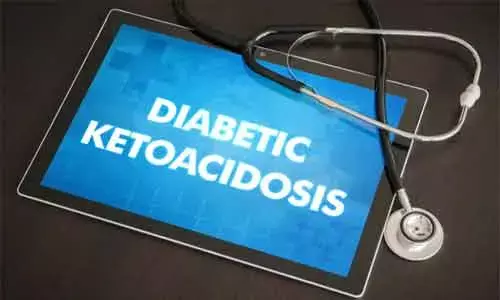- Home
- Medical news & Guidelines
- Anesthesiology
- Cardiology and CTVS
- Critical Care
- Dentistry
- Dermatology
- Diabetes and Endocrinology
- ENT
- Gastroenterology
- Medicine
- Nephrology
- Neurology
- Obstretics-Gynaecology
- Oncology
- Ophthalmology
- Orthopaedics
- Pediatrics-Neonatology
- Psychiatry
- Pulmonology
- Radiology
- Surgery
- Urology
- Laboratory Medicine
- Diet
- Nursing
- Paramedical
- Physiotherapy
- Health news
- Fact Check
- Bone Health Fact Check
- Brain Health Fact Check
- Cancer Related Fact Check
- Child Care Fact Check
- Dental and oral health fact check
- Diabetes and metabolic health fact check
- Diet and Nutrition Fact Check
- Eye and ENT Care Fact Check
- Fitness fact check
- Gut health fact check
- Heart health fact check
- Kidney health fact check
- Medical education fact check
- Men's health fact check
- Respiratory fact check
- Skin and hair care fact check
- Vaccine and Immunization fact check
- Women's health fact check
- AYUSH
- State News
- Andaman and Nicobar Islands
- Andhra Pradesh
- Arunachal Pradesh
- Assam
- Bihar
- Chandigarh
- Chattisgarh
- Dadra and Nagar Haveli
- Daman and Diu
- Delhi
- Goa
- Gujarat
- Haryana
- Himachal Pradesh
- Jammu & Kashmir
- Jharkhand
- Karnataka
- Kerala
- Ladakh
- Lakshadweep
- Madhya Pradesh
- Maharashtra
- Manipur
- Meghalaya
- Mizoram
- Nagaland
- Odisha
- Puducherry
- Punjab
- Rajasthan
- Sikkim
- Tamil Nadu
- Telangana
- Tripura
- Uttar Pradesh
- Uttrakhand
- West Bengal
- Medical Education
- Industry
Widespread Pre-school screening for T1D in may reduce prevalence of ketoacidosis: JAMA

NEW YORK- Widespread Pre-school screening for T1D in may reduce the incidence of ketoacidosis, a deadly complication of diabetes. Researchers have found that widespread screening for islet autoantibodies reduced the occurrence of life-threatening diabetic ketoacidosis (DKA) among children with pre-symptomatic T1D. The JDRF-funded research study known as Fr1da has been published in the...
NEW YORK- Widespread Pre-school screening for T1D in may reduce the incidence of ketoacidosis, a deadly complication of diabetes. Researchers have found that widespread screening for islet autoantibodies reduced the occurrence of life-threatening diabetic ketoacidosis (DKA) among children with pre-symptomatic T1D.
The JDRF-funded research study known as Fr1da has been published in the Journal of the American Medical Association.
If we identify children at high risk of developing T1D, we can monitor their disease progression to prevent DKA, a life-threatening condition that often goes undiagnosed, as well as potentially enrol them in clinical trials aimed at halting or delaying the progression toward T1D," said Sanjoy Dutta, Ph.D., Vice President of Research at JDRF. "JDRF has proudly supported this study since it officially launched in 2015, and we congratulate Dr. Ziegler and her team for this critical work that has become a model for other initiatives around the world aimed at improving health outcomes for people with T1D."
The project screened 90,632 children ages 2 to 5 in Bavaria, Germany, during primary care visits, revealing pre-symptomatic T1D in 280 children, or .31 per cent, of the children screened. Of these 280 children, 24.9 per cent developed T1D and the prevalence of diabetic ketoacidosis was less than 5 per cent, which is significantly lower than in the population of unscreened children, where the prevalence of DKA is 20 per cent in Germany and approximately 60 per cent in the United States.
The Fr1da study, led by Anette-Gabriele Ziegler, M.D., Ph.D., Director of the Institute of Diabetes Research at Helmholtz Zentrum München, is the first to introduce pre-school screenings for T1D in a general population. The success of the study shows that large-scale screenings are possible and that there are clear benefits to early diagnosis of T1D.
"A crucial finding of the study is that there is a 9 per cent annualized risk for disease progression in children with the pre-symptomatic disease," said Dr Ziegler. "This is remarkably similar to the risk in previously studied genetically susceptible children. Its implication is that multiple antibodies can be used to identify children with pre-symptomatic T1D who could benefit from the intervention in any childhood population regardless of genetic risk."
This initial research is progressing in several ways. The study will continue under the name "Fr1da-plus," adding 9 and 10-year-old children in addition to 2 to 5-year-olds. The researchers will also perform a cost-benefit analysis of the screenings, as part of the evidence to move screening to the public health sector as the standard of care. Additionally, JDRF and Fr1da will use this data to inform screening protocols in the future to support JDRF's mission to accelerate cures for T1D.
This study was supported in part by a grant from JDRF. JDRF will continue to support partners in academia, industry, and government to fund groundbreaking research, and then translate this knowledge into therapies that can stop T1D from developing and to eliminate the threat of T1D for future generations.
For more details click on the link:
JAMA. 2020;323(4):339-351DOI:10.1001/jama.2019.21565
Hina Zahid Joined Medical Dialogue in 2017 with a passion to work as a Reporter. She coordinates with various national and international journals and association and covers all the stories related to Medical guidelines, Medical Journals, rare medical surgeries as well as all the updates in the medical field. Email: editorial@medicaldialogues.in. Contact no. 011-43720751
Dr Kamal Kant Kohli-MBBS, DTCD- a chest specialist with more than 30 years of practice and a flair for writing clinical articles, Dr Kamal Kant Kohli joined Medical Dialogues as a Chief Editor of Medical News. Besides writing articles, as an editor, he proofreads and verifies all the medical content published on Medical Dialogues including those coming from journals, studies,medical conferences,guidelines etc. Email: drkohli@medicaldialogues.in. Contact no. 011-43720751


